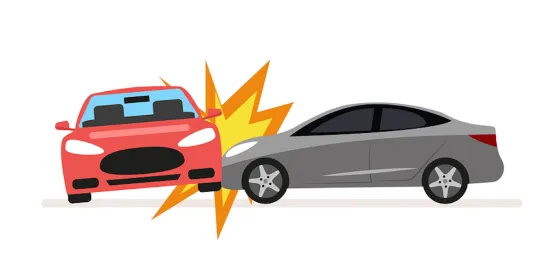The Georgia legislature recently amended O.C.G.A. § 9-11-67.1, the statute that sets forth requirements for pre-answer settlement demands in motor vehicle personal injury cases, to temper use of such pre-answer settlement demands to set up bad faith failure-to-settle claims against insurers. These pre-answer demands are known as Holt demands based on the Georgia Supreme Court case of S. Gen. Ins. Co. v. Holt, 262 Ga. 267, 416 S.E.2d 274 (1992), which established that an insurer which fails to settle a claim for its insured—and is found to have done so negligently, fraudulently, or in bad faith—may be liable for damages in excess of the insurance policy limits. Holt demands often arise in personal injury motor vehicle cases because the injured plaintiffs seek to overcome low liability limits under an auto insurance policy. Plaintiffs’ attorneys impose extensive, intricate conditions in their Holt demand with the goal of the insurers rejecting the demand, so that plaintiffs can later pursue a bad faith failure-to-settle claim against the insurers.
The legislature amended O.C.G.A. § 9-11-67.1 in 2021 in a previous attempt to rein in the use of overly complex Holt demands as bad faith setups. That amendment required plaintiffs making a motor vehicle personal injury demand to identify specific material categories of information and clarified the timing for such demands. The prior amendment did not stop the gamesmanship and misuse of Holt demands by plaintiffs in personal injury motor vehicle cases, however, because plaintiffs’ counsel adjusted their strategies to account for the new rules. At the same time, Georgia courts required strict compliance with the terms of Holt demands, sometimes resulting in absurd outcomes. Several examples include the following:
- Patrick v. Kingston, No. A23A1527, 2024 WL 566609 (Ga. Ct. App. Feb. 13, 2024): Standard language on check printed by the bank—not the insurer—that the check would be “VOID IF NOT PRESENTED WITHIN 90 DAYS” deemed a counteroffer.
- Simmons v. Bates, 366 Ga. App. 410 (2023): Holt demand was contingent on two insurers accepting. One insurer accepted; the other did not. The court held that no settlement was reached, even though the court noted that the settlement offer “was 39 pages long and contained 30 footnotes,” id., and expressed “. . . concern that this lengthy and unnecessarily convoluted offer appears to be intentionally difficult to accept . . . .” Id. at 417.
- Pierce v. Banks, 368 Ga. App. 496 (2023): Holt demand deemed rejected because (1) defense counsel stated that she was “authorized” to accept the settlement, while the terms of the offer required the defense to “accept” the demand; (2) the comma in plaintiff counsel’s law firm name was missing in the check; (3) the demand required payment to be issued after 15 days and the insurer issued it sooner than 15 days; and (4) the demand required that no additional conditions be placed on payment, and the check included a notation that it was “void after 180 days” (as do most standard bank checks).
The newly amended version of O.C.G.A. § 9-11-67.1 also includes several changes which are designed to take another stab at making pre-answer settlement demands focus more on the prospective merits of resolving the personal injury claim and less on gamesmanship by savvy plaintiffs’ counsel. Examples include the following:
- Holt demands are now treated as an offer to enter into a bilateral contract.
- A Holt demand must still contain specific material terms enumerated in the statute, but the amendments clarify that those are the only material terms to a Holt
- Variance from an immaterial term in a Holt demand (as defined in the amended statute) shall not subject the recipient to a bad faith failure-to-settle claim.
- The date for delivery of payment cannot be less than 40 days from receipt of the offer.
- The amended statute applies to all offers “to settle a tort claim for personal injury, bodily injury, or death arising from a motor vehicle collision,” and plaintiffs cannot bring an action for alleged failure to settle a tort claim for bodily injury or death from a motor vehicle collision unless the Holt demand meets the conditions of the amended statute.
- Importantly, the amended statute now applies to any offer to settle a tort claim for bodily injury or death arising from a motor vehicle collision “even where such offer expressly provides that any or all of [O.C.G.A. § 9-11-67.1] does not apply to such offer.”
The most recent round of changes is unlikely to end completely the use of Holt demands to manufacture failure-to-settle claims against insurers, just as the past amendments to O.C.G.A. § 9-11-67.1 have had limited success. But the most recent amendment appears better-suited to temper misuse of Holt demands than prior attempts. Nonetheless, defendants and their counsel will want to ensure that they are responding appropriately to the “material” terms of any offer to settle a tort claim arising from a motor vehicle collision to ensure the protection of the amended statute.
Finally, policyholders should keep abreast of the changes in O.C.G.A. § 9-11-67.1 and Holt demands even though bad faith failure-to-settle claims typically implicate insurers. In particular, policyholders with fronting policies where a self-insured or captive insurer retains the risk of loss. And policyholders with self‑insured retentions may face their own obligations to respond to Holt demands before they reach their “real” insurance limits. Those policyholders should promptly assess any Holt demands directed to them and ensure compliance with the material terms if they intend to accept the demand. More fundamentally, however, all policyholders should reach out to their own insurers when a Holt demand arises to make sure that the insurers are treating the demand with appropriate seriousness. While it is the insurer that may be on the hook for damages in excess of policy limits, the policyholder could face unexpected damages or public relations issues if a personal injury claim settlement that the policyholder expected to proceed falls through for technical reasons. Insurance coverage counsel can help navigate what has proven to be a complicated and uncertain part of pre-answer practice for personal injury motor vehicle cases in Georgia.





 />i
/>i
